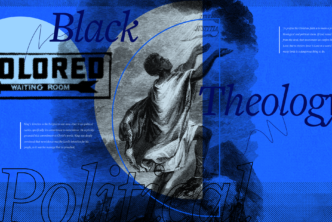Abraham Kuyper was a pastor, journalist, theologian, politician, institution-founder and -builder, church reformer, and cultural critic. His peers regarded him as a theological genius. But it was his sustained concern for ordinary Christians and their public witness that animated his prodigious life.
***
In 1863, Abraham Kuyper graduated as an award-winning doctor of theology and took up his first pastoral ministry in the small Dutch village church of Beesd.
Shortly after arriving, he was confronted by the question of his identity in the most surprising of ways: a small group of church members refused to attend worship services under his pastoral leadership.
But these weren’t just cranky congregants.
These “malcontents,” as he called them, presented him with an opportunity to consider his personal identity under the lordship of Jesus Christ.
This encounter must not have been easy—not only because of Kuyper’s lurking pride . . . but also because this encounter shook the uneasy balance Kuyper was trying to maintain between the pious faith of his upbringing and the modern faith of his university studies.
Over the weeks, attendance continued to decline. . . .
Kuyper became aware that a certain group of simple, pious members had found his preaching lifeless and his “enlightened” faith problematic. Instead, they had started meeting informally in their homes for Bible study and prayer. For them, Kuyper’s preaching left much to be desired when it came to giving gospel-comfort to their souls.
Kuyper swallowed his pride and determined to meet with them, to hear their complaints, and to persuade them to return to church.
But when he arrived on the front steps of their homes, he found them entirely opposed to him. They would not let him enter. They even refused to shake his hand! Such was the determination with which they had set themselves against him and his understanding of the Christian faith. . . .
Only one young woman, Pietje Baltus, who was in her twenties at the time, was willing to meet with Kuyper and discuss the group’s issues with him.
It was through her that Kuyper came to a number of profound realizations about his identity and his Christian faith, starting with the fact that his upbringing, university education, and seminary formation had provided him with only a meager knowledge of the Bible. With that kind of (mal-)formation, he could begin to see why these members opposed him.
Kuyper underwent a profound spiritual transformation rooted deep within his self-understanding—a conversion—that transformed his identity and his life’s trajectory. . . .
It was not the Dutch nation or church that was to have that central place. It was not the allure of the scientific method, even with its fascinating and captivating discoveries for politics and culture. And it was not the doctor of theology himself, either.
The only rightful occupant of that central place in a Christian’s identity is the Lord Jesus Christ.
Helping to bring Kuyper to this point of crisis was their gift to him: his realization of the lordship of Jesus meant that Jesus, faith, Scripture, and the church could now find their proper place within a well-ordered—and biblical—Christian worldview.
Reflecting on this period of his life, Kuyper wrote years later that even though “they set themselves against me . . . I still thank God that I made that choice [to engage and ultimately join them]. Their unremitting perseverance has become the blessing of my heart, the rise of the morning star in my life.”
***
This post is adapted from Engaging the World with Abraham Kuyper by Michael R. Wagenman, available now through Lexham Press.
The title of this post is the addition of the editor. The author’s views do not necessarily represent those of Faithlife.




